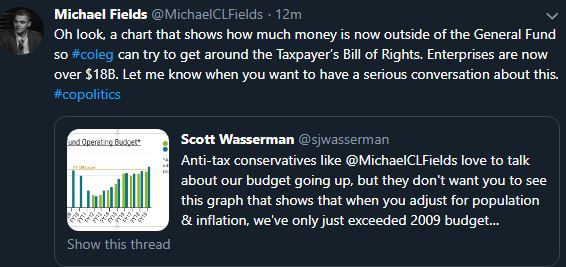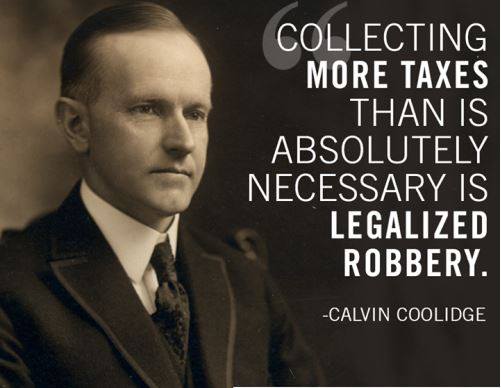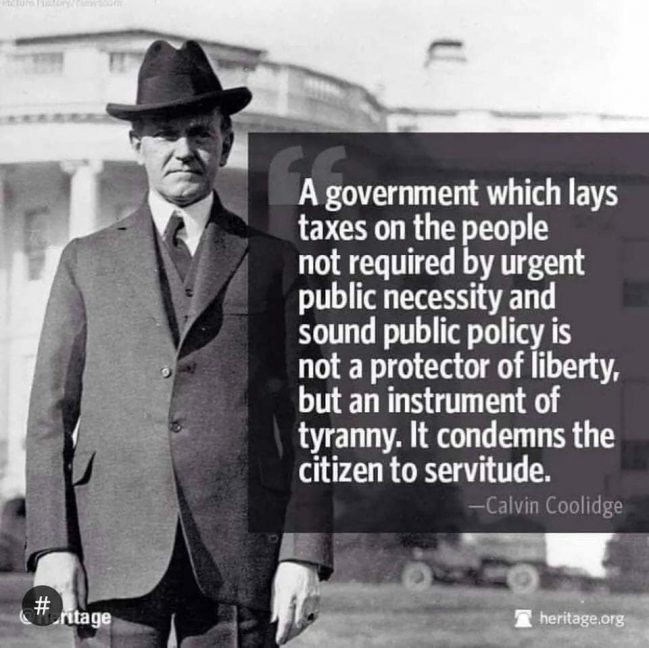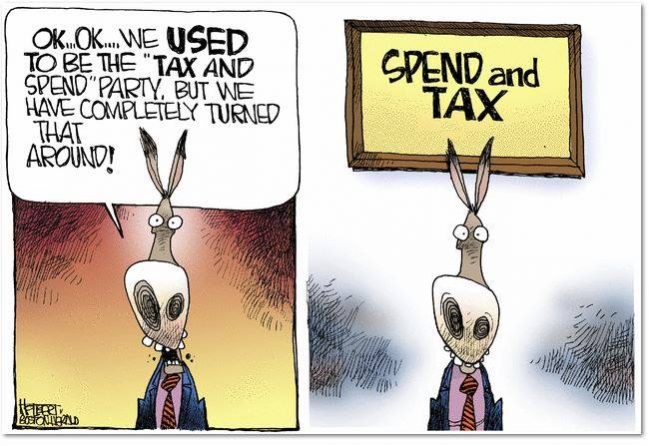
Category Archives: Fiscal Policy
Apr
26
Apr
26
A Tweet About TABOR And The Liberals Distort The Facts

Apr
26
The Liberals Modus Operandi

Apr
26
Collecting More Taxes Than Is Absolutely Necessary Is Legalized Robbery

Apr
26
President Calvin Coolidge And Taxes

Apr
26
Timely Quote From President Calvin Coolidge

Apr
25
The Probability Of Getting Fooled On April Fools vs Election Day

Apr
25
Do We Need Government To Solve All Of Our Problems?

Apr
25
Coloradans may face 4 spending questions this year. Will new nicotine tax measure overload the ballot?
Michael Fields@MichaelCLFields Tweeted:
The state budget went up by $1.6B again this year. Government has enough money already.



Coloradans may face 4 spending questions this year. Will new nicotine tax measure overload the ballot?
The proposal, announced Wednesday by Gov. Jared Polis and Democratic state lawmakers, would set a uniform nicotine tax at 62 percent. That would lift the taxes on a package of cigarettes to $2.49 from 84 cents.
Apr
25
Why #TABOR Matters on April 25
#TheBottomLine
#TABOR
#ThankGodForTABOR
